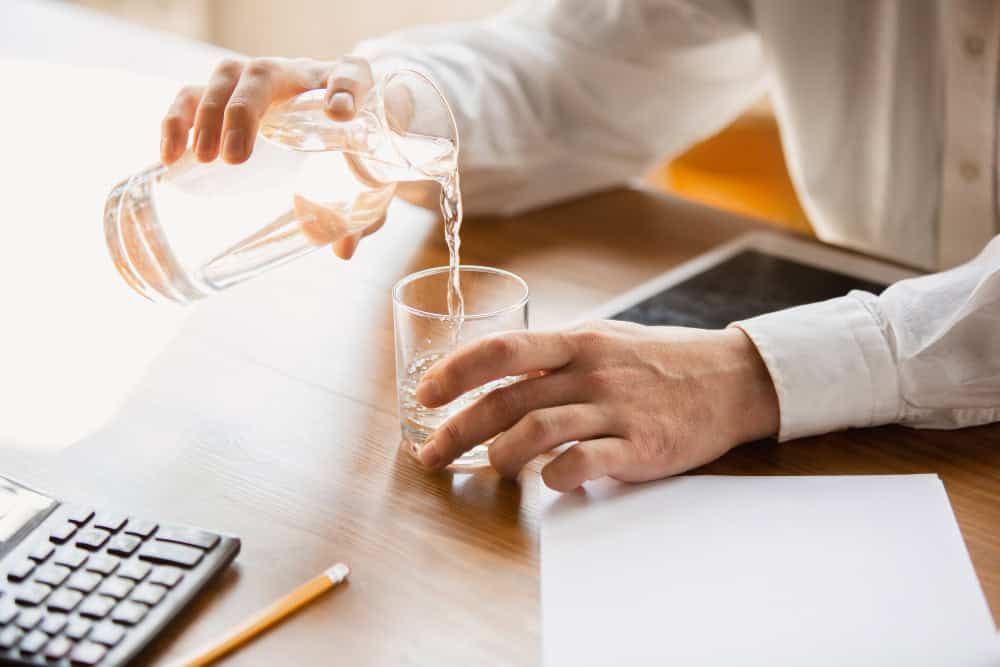Table of Contents
Feeling sluggish and looking for ways to boost your energy without relying on caffeine? You’re not alone. Research suggests that around 80% of adults in the U.S. consume caffeine daily to stay awake.
While caffeine is a popular go-to for a quick energy boost, there are numerous other strategies that can help invigorate your body and mind. From physical activities to healthy habits, here are some effective caffeine-free ways to boost your energy.
How Can I Get an Energy Boost Without Caffeine?

When you feel tired, the first that you probably think of is getting that cup of coffee. Too much of it, however, can be detrimental to your mind and body in the long run.
According to the National Center for Complementary and Integrative Health, large amounts of caffeine may cause issues such as heart rhythm disturbances, anxiety, increased stress levels, sleep disorders, digestive problems, and dehydration.
It may sound impossible, but there are ways to stay awake and be energized without a drop of coffee in your system.
Boosting energy without caffeine is all about adopting lifestyle habits that naturally enhance your vitality. Here are some proven methods to help you stay awake:
Get Moving with Exercise
Regular physical activity or exercise is one of the most effective ways to increase energy levels. Exercise helps improve cardiovascular health, strengthens muscles, and releases endorphins—hormones that make you feel good and energized. Even short bursts of activity, such as a brisk walk, can make a big difference.
Prioritize Quality Sleep
Perhaps the best way to ensure that you won’t suffer from low energy throughout the day is to get enough sleep the night before. A good night’s sleep is crucial for maintaining your energy levels as you go about your day. Aim for 7-9 hours of uninterrupted sleep per night.
A relaxing bedtime routine is the key to good sleep hygiene. Keep your bedroom cool and dark, avoid screens before bed to fall asleep quickly, and always go to sleep at the same time to improve your sleep quality.
Sync with Your Circadian Rhythm
Aside from getting quality sleep, it’s important to be in tune with your circadian rhythm. Your circadian rhythm is your internal body clock and helps control your sleep-wake schedule. You can get out of your circadian rhythm if you have an irregular sleep schedule, work night shifts, fight your desire to sleep or stay awake, and the like.
You can get in sync by keeping a regular sleep schedule, eating your meals at regular times, and going to bed during your melatonin window. The melatonin window is the one-hour window when your body’s rate of melatonin, the hormone responsible for sleep, is at its highest.
Drink Water
According to research published in the Social and Behavioral Sciences journal, dehydration can lead to fatigue and decreased cognitive performance. Ensure you stay hydrated by drinking plenty of water throughout the day. Sometimes, feeling tired is simply a sign that you need more fluids.
Eat a Balanced Diet
Your diet plays a significant role in your energy levels. A cup of coffee or a sugary snack can be a quick fix to reduce that energy slump but they’ll only spike your blood sugar levels and give you a sugar crash. Instead, it’s better to eat healthy meals. Eating complex carbs, healthy fat, and lean protein can help fuel you up.
Fill up on Fiber
Eating food rich in fiber can help your body absorb carbohydrates at a slower rate and help you avoid sugar crashes. Add whole grains and vegetables to your lunch to boost you up. In the afternoon, you can snack on a banana, a cup of raspberries, or other fruits and pair them up with nut butter to have something delightful.
Gum Chewing
Some research shows that chewing gum can help you be more awake and energized due to the stimulation of facial muscles, causing an increase in blood flow to the head. Additionally, because chewing isn’t an involuntary muscle movement like breathing or blinking, doing so slightly stimulates the brain, helping you stay awake.
Aromatherapy
Certain smells can help jump-start your senses, reduce stress, and may help you with focus, energy, and more. You can try using essential oils with eucalyptus, lemon, or peppermint.
What Can I Use Instead of Caffeine for Energy?

If you’re looking to decrease your caffeine intake but still need something to boost your energy, consider these alternatives:
Herbal Teas
Drink herbal teas instead of coffee. Herbal teas such as peppermint, ginger, and ginseng can refresh your energy without the jitters associated with caffeine. They also offer various health benefits, such as aiding digestion and reducing inflammation.
B Vitamins
B vitamins, especially B12 and B6, are essential for energy production. They help convert food into energy and support cognitive function. Incorporate foods rich in vitamin B like eggs, dairy products, and leafy greens into your diet, or consider a vitamin B-complex supplement.
Adaptogenic Herbs
Adaptogens like ashwagandha, Rhodiola, and holy basil can help relieve stress and give you more energy. These herbs have been used in traditional medicine for centuries and are available in various forms, including capsules and powders.
What Gives You More Energy Than Caffeine?

Several strategies can provide a more sustained and natural energy surge compared to caffeine:
Morning Sunlight Exposure
Exposure to natural sunlight in the morning helps regulate your circadian rhythm and boosts serotonin production, which can improve mood and energy levels. Soaking up the sun is also a great way to get more vitamin D. Try to spend at least 15-30 minutes outside in the morning sunlight.
Breathing Exercises
Practicing deep breathing exercises can increase oxygen levels in your blood, leading to improved energy and mental alertness. Techniques such as diaphragmatic breathing or the 4-7-8 method can be particularly effective.
Cold Showers
Taking a cold shower can stimulate your body and mind, increase your blood pressure, and kick up your heart rate, leading to increased alertness and more energy. The shock of cold water can improve circulation and invigorate your senses, making it a quick and effective way to wake up.
Take a Power Nap
Sometimes your body just needs a sleep reset. However, taking long naps will make your body feel more tired instead of feeling energized. Taking a power nap lasting for 15 to 30 minutes can help you feel more alert and improve your mood.
Avoid napping close to bedtime though as this will make it harder to fall asleep at night and lead to sleep deprivation instead.
Can You Make Energy Drink Without Caffeine?

Yes, you can make energy drinks without caffeine by using natural ingredients that provide a refreshing and energizing effect. Here’s a simple recipe for a homemade caffeine-free energy drink that you can use as a pick-me-up:
Homemade Caffeine-Free Energy Drink
Ingredients:
- 1 cup coconut water
- 1 cup pomegranate juice
- 1 tablespoon chia seeds
- 1 tablespoon honey
- A pinch of sea salt
- A squeeze of lemon or lime juice
Instructions:
- In a large glass or bottle, combine the coconut water and pomegranate juice.
- Add the chia seeds, honey, sea salt, and lemon or lime juice.
- Stir or shake well to combine all ingredients.
- Let the drink sit for about 10 minutes to allow the chia seeds to expand.
- Stir again before drinking.
This drink is packed with electrolytes, antioxidants, and natural sugars that can help boost your energy and keep you hydrated throughout the day.
Final Note
Incorporating these caffeine-free strategies into your daily routine can boost your energy without relying on caffeine. By focusing on holistic approaches, such as exercise, proper nutrition, taking a power nap, drinking water, and getting enough sleep, you can achieve a more sustainable and balanced source of energy and improve your overall health and well-being.
If you still feel fatigued even when following these tips, consider speaking to your healthcare provider.
